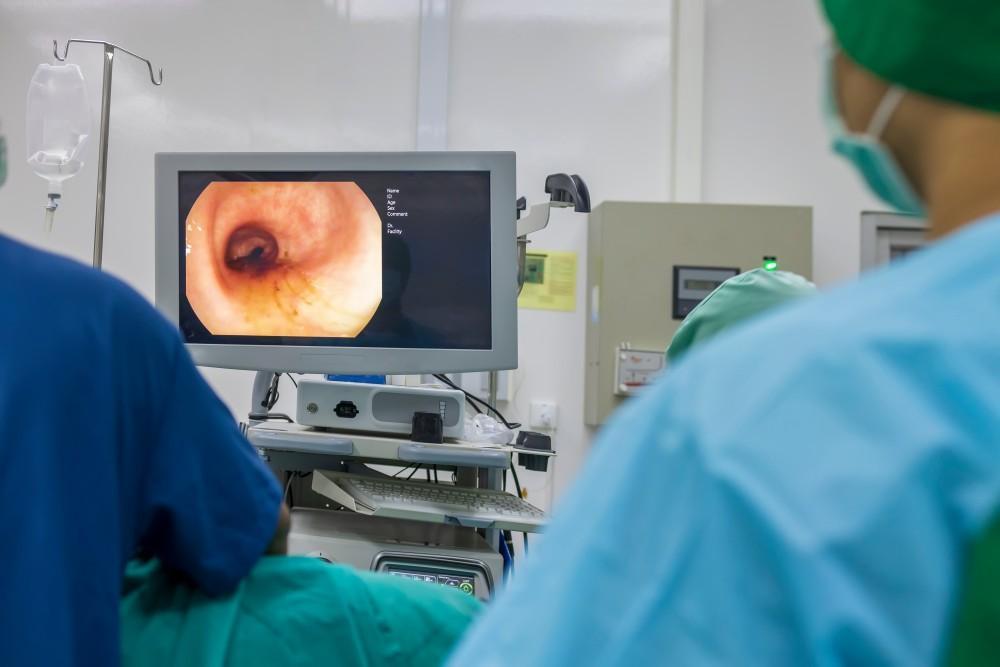
Living with Ulcerative Colitis: Management Tips and Lifestyle Changes

About 600,000-900,000 women, men, and kids in the United States have an inflammatory bowel disease (IBD) known as ulcerative colitis (UC). Although UC tends to strike most often between the ages of 15 and 30, anyone of any gender or any age may get it.
This chronic — and so far incurable — disease is characterized by ulcers in and inflammation of the inner lining of your large intestine, otherwise known as the colon. Most UC flares come in cycles, with periods of remission.
Untreated and unmanaged UC can lead to serious complications, such as a perforated colon. In children, UC may cause a failure to thrive and grow.
At Colon and Rectal Surgeons of Greater Hartford, our expert colorectal surgeons use the latest research and newest medical advances to diagnose and treat UC at our offices in Bloomfield, South Windsor, and Plainville, Connecticut. We also encourage you to adopt new habits that help improve your quality of life.
How can you feel better with UC? Follow the tips below.
Feed your body
Strongly associated with a western diet and lifestyle, UC responds well to lifestyle interventions, particularly those that center on dietary choices. Instead of grabbing quick meals at the grocery store or fast food joint, revisit your ancestry for more traditional foods that rely on whole, natural ingredients.
The Mediterranean diet is often touted as a gut-, heart-, and health-friendly way to eat. But many cultures have rich dietary traditions that you can also draw on, based on your preference or background.
The main thing is to provide your body with the nutrients it needs without the sugars and trans fats in the Western diet that cause chronic diseases, such as UC and diabetes. Focus on foods like:
- Cooked and raw vegetables
- Low-glycemic fruits
- Fiber-rich tubers such as yams and yucca
- Whole grains
- Beans
- Fermented foods such as kimchi and sauerkraut
- Lean, pastured meats
- Fish and seafood
- Pastured poultry and eggs
- Healthy fats such as olive oil
We now know that traditional diets contain important nutrients as well as anti-inflammatory agents that can help alleviate pain in your gut. Keeping a food diary, as well as being aware of pro-inflammatory foods (such as FODMAPS), can help you find your best choices.
Feed your gut
In addition to choosing whole foods for your meals, you also need to add in resistant starches that your intestines don’t digest, but your gut bacteria do. In this way, you nourish the “good” bacteria in your gut that tend to be depleted in those with UC.
Some foods are naturally high in resistant starches, which are starches that are “resistant” to digestion. Examples include plantains and unripe bananas. Others — such as white potatoes and white rice — can be transformed into resistant starches by cooking, cooling, and then possibly reheating them.
Avoid irritants
In addition to FODMAPS, other foods and beverages can trigger inflammation and a flare of your disease. Consider eliminating or seriously limiting:
- Alcohol
- Caffeine
- Fruit that hasn’t been peeled
- Dairy products
- Dried fruits
- Foods with high sulfur content
You may also have trouble digesting beans, nuts, and seeds. Sprouting or fermenting these otherwise healthful foods may make them more digestible.
Raise your bile
Researchers have noted that people who live with UC have low levels of healthy bacteria in their guts. One bacterial family — Ruminococcaceae — is severely underrepresented in UC patients. In contrast, healthy people have plenty of Ruminococcaceae in their intestines.
Ruminococcaceae carry the genes needed to make the enzymes that convert primary bile acids into secondary bile acids. Bile acids help emulsify and digest fats and tend to be depleted in UC patients.
Clinical trials with oral supplementation with ursodeoxycholic acid, a bile acid approved by the FDA, are going on now. You can talk to your colorectal specialist about looking into this prescription supplement as well as other novel therapies.
Stay active
Getting enough daily activity and regular exercise can improve your quality of life and even your mood when you have UC. Choose from a variety of healthy activities to keep your body and mind engaged:
- Yoga
- Tai chi
- Dancing
- Running
- Walking
- Swimming
- Cycling
- Resistance training
Keeping an active social life and managing stress also improve quality of life.
Get help
New therapies, such as mirikizumab and ustekinumab, have recently been used to help control inflammation and pain in UC. A relatively new class of drugs known as biosimilars work like biologics, but are less expensive. Novel therapies, including fecal implants and stem-cell therapy, may also soon be available.
To live better and more fully with UC, schedule an appointment online for ulcerative colitis care today. Or, you can phone our knowledgeable staff at the office nearest you (Bloomfield, South Windsor, or Plainville, Connecticut).
You Might Also Enjoy...


How a Colonoscopy Can Save Your Life

4 Signs You May Have Pilonidal Disease

Start the New Year Fresh with a Colonoscopy

5 Tips for Managing Your Crohn's Disease During the Holidays


